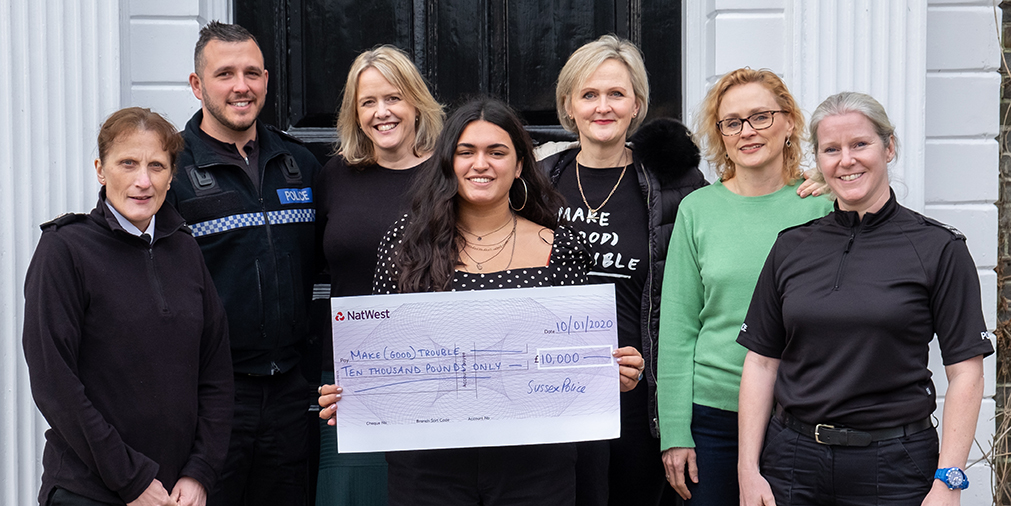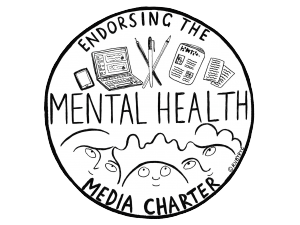We asked teenagers to give us their thoughts on what International Women’s Day means to them…
How can we support and nurture our future young teenage women?
#EachforEqual
By Kaia Allen-Bevan, 17
On the 8th of March, the first international women’s day of this decade will take place. It will be the 106th celebration since 1914, when the first European Women’s Day was announced. Even though we should celebrate women on a daily basis, this annual declaration is important. Those living today can reflect upon the past, acknowledge the present and ponder upon the future, and how women are an important piece to society’s grand, confusing and often chaotic puzzle.
This year’s theme is #EachforEqual, so if you see images of women (and men) on social media posing with their arms in an ‘equals’ sign, it correlates back to this global celebration. It allows participants to know that “An equal world is an enabled world” and that, “Individually, we’re all responsible for our own thoughts and actions – all day, every day. We can actively choose to challenge stereotypes, fight bias, broaden perceptions, improve situations and celebrate women’s achievements.” (from internationalwomensday.com).
As a biracial feminist, and coming from a beautiful black mother, I know that this world is not equal, neither is it meritocratic. As I am darker than my counterparts, there are many mountains I have no choice but to embrace. However, these difficulties in my life can be transformed into something, not just beneficial to me, but for those around me. I recognize that I’ve descended from many strong, resilient black women and men who sacrificed their lives to build the foundations for my generation, for those before and for those to come. Even if I can’t hear all their stories today, I know that their altruism has allowed me to access avenues they couldn’t and, before leaving this earth, have given me talents that I should utilize. Their voices – that were shushed by injustice (which sadly is as prevalent today) – have given me the motivation to uplift people around me through sharing their stories on a blog I made back in June. I hope that this platform gives a new-born confidence that individuals never thought they had and allows people to reclaim their voices in a society that compacts them and allows them to stand in their truth (if you wish to read some of these stories, here’s the link). #Thetruthwillsetyoufree.
Despite my journey being difficult, women who are darker than me will suffer more so, and those who are lighter will sew the riches society has planted for them, whether these women are aware of this or not. This deeply engrained discrimination exceeds the boundaries of individuals and their actions and lies within institutions and legislation around the globe. Even within feminism, a movement in place to liberate women, it seems to be that black women in particular are left behind, isolated in the shadows and overlooked in celebration.
Black women are taught to literally polarize their existence. As soon as they are released from their mother’s womb, they are cuffed in Western ideals that their melanin rich skin can’t help but fail to meet. With over 75% of Nigerian women, 59% of Togonian women and 35% of South African women using bleaching products to lighten their skin – but this is not exclusive to just Africa. Even if their wider noses inhale the same air, they are denied the basics of humanity.
But that’s not to say that their beauty isn’t seen. Modern day society demonstrates an overt cultural appropriation, where non-black women display black culture, traditions and physicality, yet, black bodies are framed in an ‘ugly’ picture. The builders of economies have been denied their pay, and their works have been stolen and rewritten in history; the scales have never been balanced. Black women are constantly running a race they are pre-destined to lose. Traumatized and ruled by their psychological “slave mentality”, the weight of unworthiness is bared in a ‘better world’, even if Abraham Lincoln seemingly ‘unshackled’ these chains in 1863. Their royalty is lost in a long-distant land, alongside our primal knowledge of everyone’s first ancestor-who, by the way, was black.
But we don’t want a fairytale; we need a reality.
If we want #EachforEqual to be true, then each one of us must devote our best interests to be antiracist. To be pro-black doesn’t mean anti-white. It’s fluid, inviting all races, genders, sexualities, classes – in fact, all differences to adopt this fundamental attitude. #AllLivesMatter.
This should occur because they are human, for they finally deserve to be treated likewise. We shouldn’t objectify people because of their race, but rather just notice that they look different and, therefore, conclude that their resulting experience is different. It’s realizing the color of their skin but becoming independent of it; that they walk the same earth but are refused all its luxuries. They are not their stereotype (which shouldn’t exist in the first place).
You may not be able to influence big bourgeois and their organizations, but you can change the views of individuals around you. It takes a village to raise a child, and the more children engaged, the bigger the change. This doesn’t require fancy words…it only requires you, your imperfect, perfect self. If we want a future generation of bold, courageous women, then we must include all women. But this act shouldn’t be done for your own interests, neither should this be done because they are a minority – they are not a token for you to manipulate for your own advantage. It should be done for the advancement of ALL women.
Do not be afraid to embrace the more complex side of equality, for once that is pursued, it allows walls to be broken and paths to be paved to create a better society. May 2020 be the year to commemorate the changes already marked in history, but also be the decade to tick the boxes left untouched.


